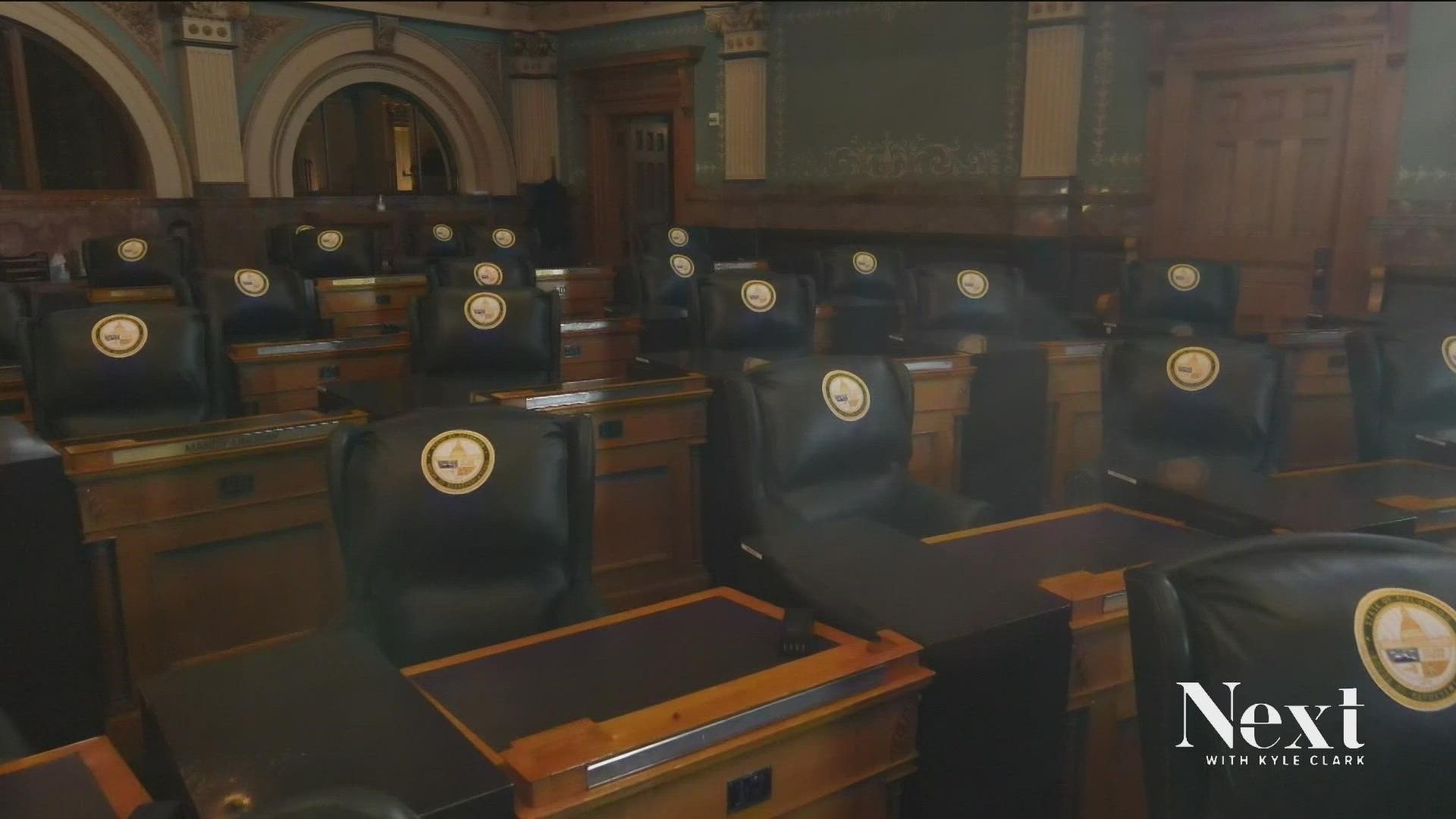DENVER — There are 100 seats in the state legislature. Each one gets decided by voters at the ballot, except when they don't have a say.
There have already been four vacancies at the State Capitol this year.
That means a small group of party insiders pick the replacement to serve the remaining years of the term, and not voters.
"I've put a lot of thought into this process. I think I've maybe put more thought of into it than just about anyone else in the state," said State Sen. Jeff Bridges, D-Greenwood Village.
Bridges was first appointed to the State House by a vacancy committee of 118 people.
He was also appointed to fill a vacancy in the State Senate by a vacancy committee of no more than 66 people.
"Important to note, two years ago, I ran a bill requiring those vacancy committees be much larger," Bridges said.
"Larger" is relative.
That bill, HB22-1044, said that instead of a political party's central committee picking members of a vacancy committee, that central committee would also be on the vacancy committee.
If that sounds like political inside baseball, it is.
Picture the caucus/assembly process, where you meet via Zoom or in a living room or school classroom, to make decisions for your political party. Those are the people that help pick replacements for vacancies.
Why not a special election?
"If the election isn't for three months, then the vast majority of the session, those people don't have a representative here at the Capitol," Bridges said.
The legislative session runs for 120 days from January to early May.
So far, for the 2023 legislative session, there have been four vacancies.
- State Rep. Hugh McKean, R-Loveland, passed away
- State Rep. Adrienne Benavidez, D-Adams County, resigned
- State Rep. Tracey Bernett, D-Louisville, resigned
- State Sen. Bob Rankin, R-Carbondale, resigned
McKean, who was on the ballot unopposed prior to his death, still earned 26,542 votes.
His seat was filled in a vacancy committee that selected Ron Weinberg, who won with 23 votes.
Bernett resigned the night before the legislative session started on Monday. She faces charges, accused of lying about her primary residence in order to run for office in a new district following redistricting.
Her seat will be filled on Jan. 28 by a vacancy committee of no more than 53 people.
Rankin resigned on Tuesday. He was originally appointed to a vacant State Senate seat in 2019 with six of 10 vacancy committee votes. He was elected on the ballot in 2021.
After his resignation, 17 out of 19 people on the vacancy committee selected his replacement, Perry Will.
Coincidentally, Will was on the ballot in Nov. seeking reelection to the State House. Nearly 37,000 people voted in that race and chose his Democratic challenger Elizabeth Velasco (57%) over Will.
Benavidez won her reelection with 15,077 out of 22,856 votes (66%). She resigned just before the start of the session. A vacancy committee selected Lorena Garcia, who received 24 out of 40 votes.
"Vacancy committees, while I don't like them, I understand how they're necessary because you have to be able to replace somebody who's leaving right away, otherwise a district is going to go unrepresented for a certain period of time," Garcia said.
She called the system flawed, but said an alternative, like a special election would be costly.
"If we want to start having special elections and doing that kind of stuff, we have some major fiscal and monetary reform that we have to do in this state," Garcia said. "I would be happy to say, 'if you all still want me in Nov. 2023, then tell me. If you don't, then OK.' I'm fine with that. I want civic participation. I want people engaged in the process."
Garcia said that voters do have a say because the people who make these decisions, the central and vacancy committees, are picked by people who participate in the party process.
"This is how we get represented, when we step up and get our voices heard," said Karin Asensio, executive director of the Colorado Democratic Party. "If you care about your community, you care about your district, you care about your county, please join us."
Asensio defended the vacancy process saying it is better than alternatives.
"There's four options. Either we have no election, no representation. Vacancy committee, which is by the district, but smaller. We have a snap election, which is costly and will favor the rich in a very big way. And the last option would be a governor appointing their preference, and that would not be very Democratic, one person appointing for everyone," she said.
A special election, which is not currently an option, would cost money and leave a seat vacant until the election.
"Only people that are wealthy would be able to get elected, because nobody could, without money, run an election like that in 30 days," Asensio said.
"When you do those snap elections, overwhelmingly those elections tend to favor people who have lots and lots of money," Bridges said. "Well-funded people win a three-month election. General elections, the field is wide open."
SUGGESTED VIDEOS: Next with Kyle Clark

